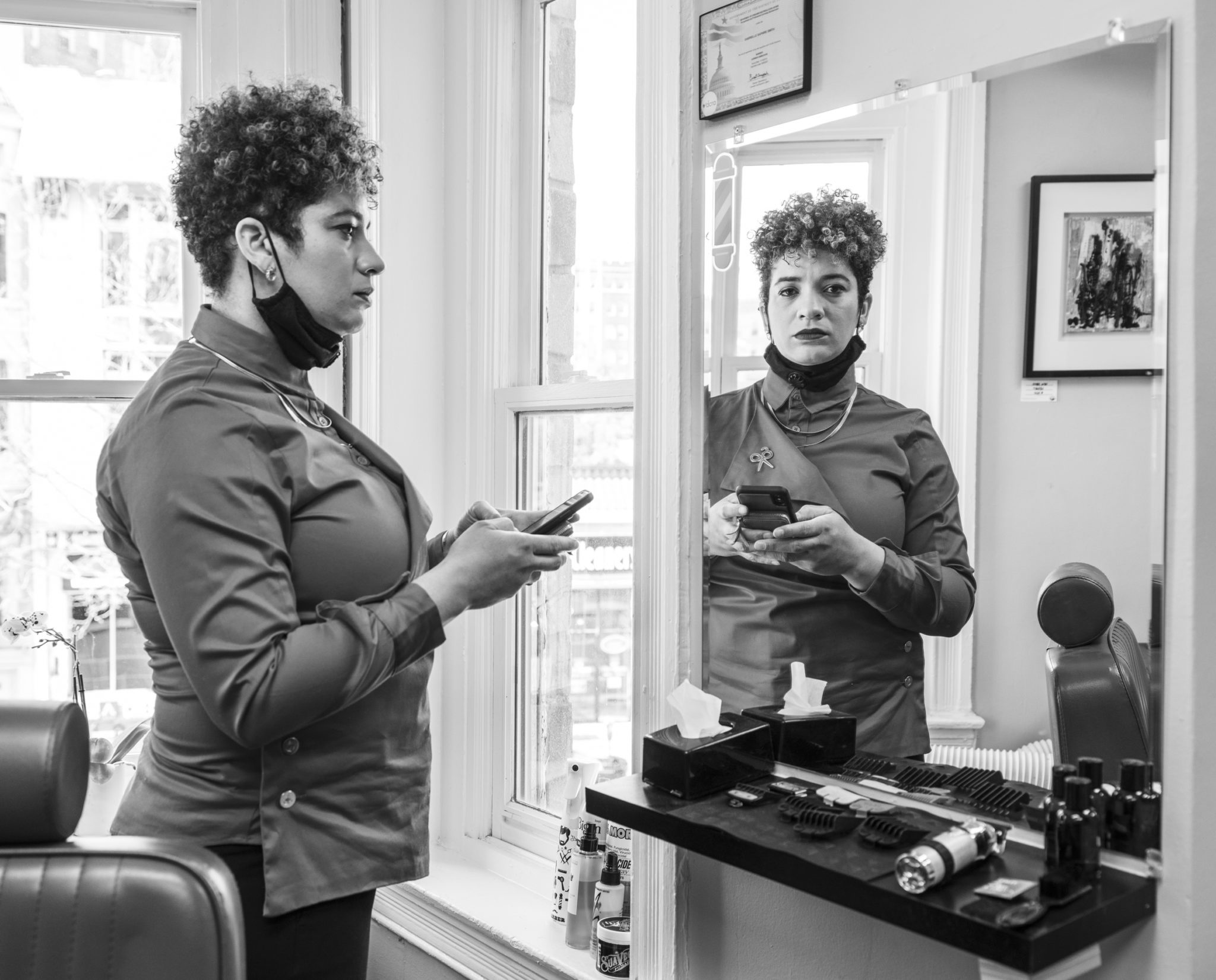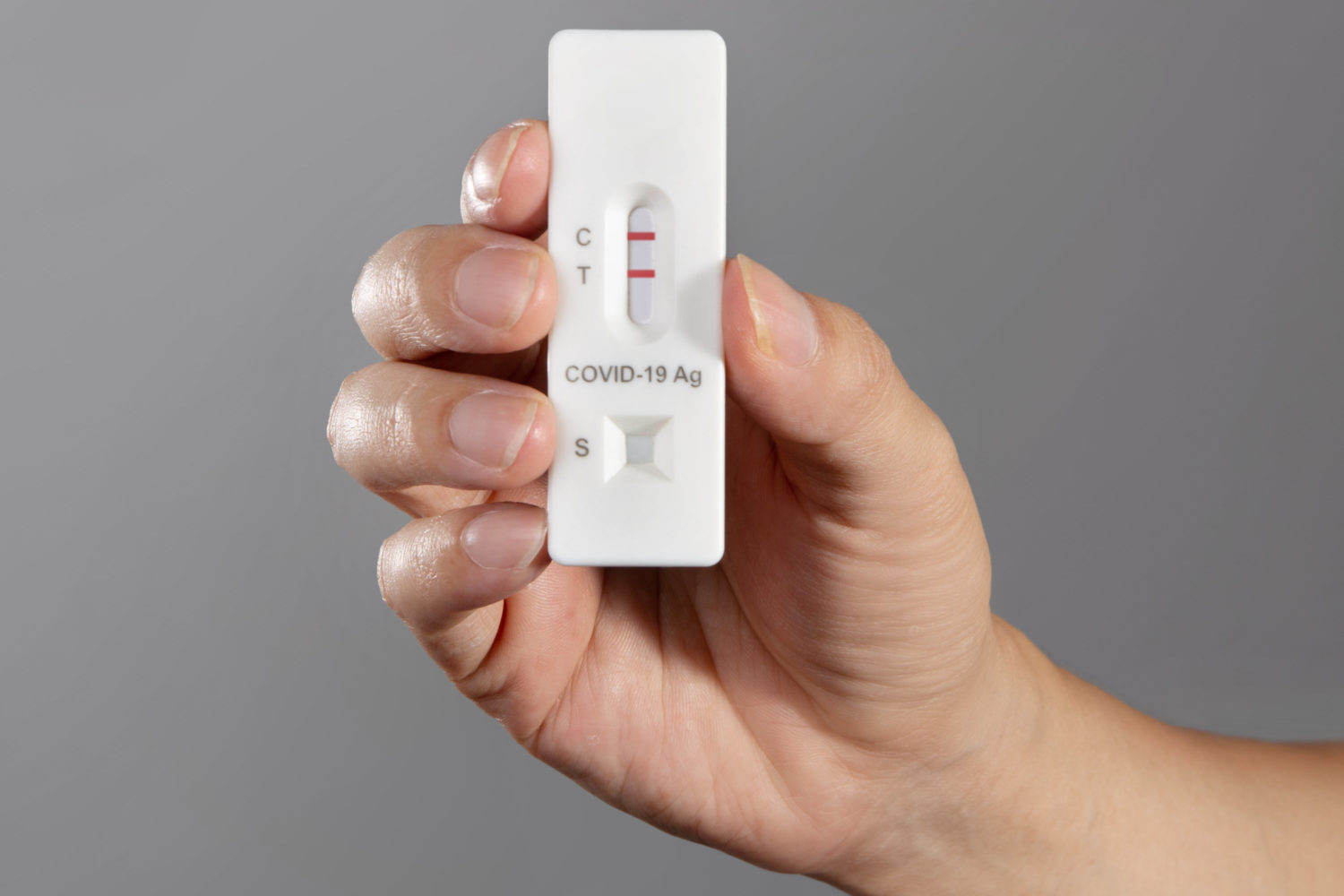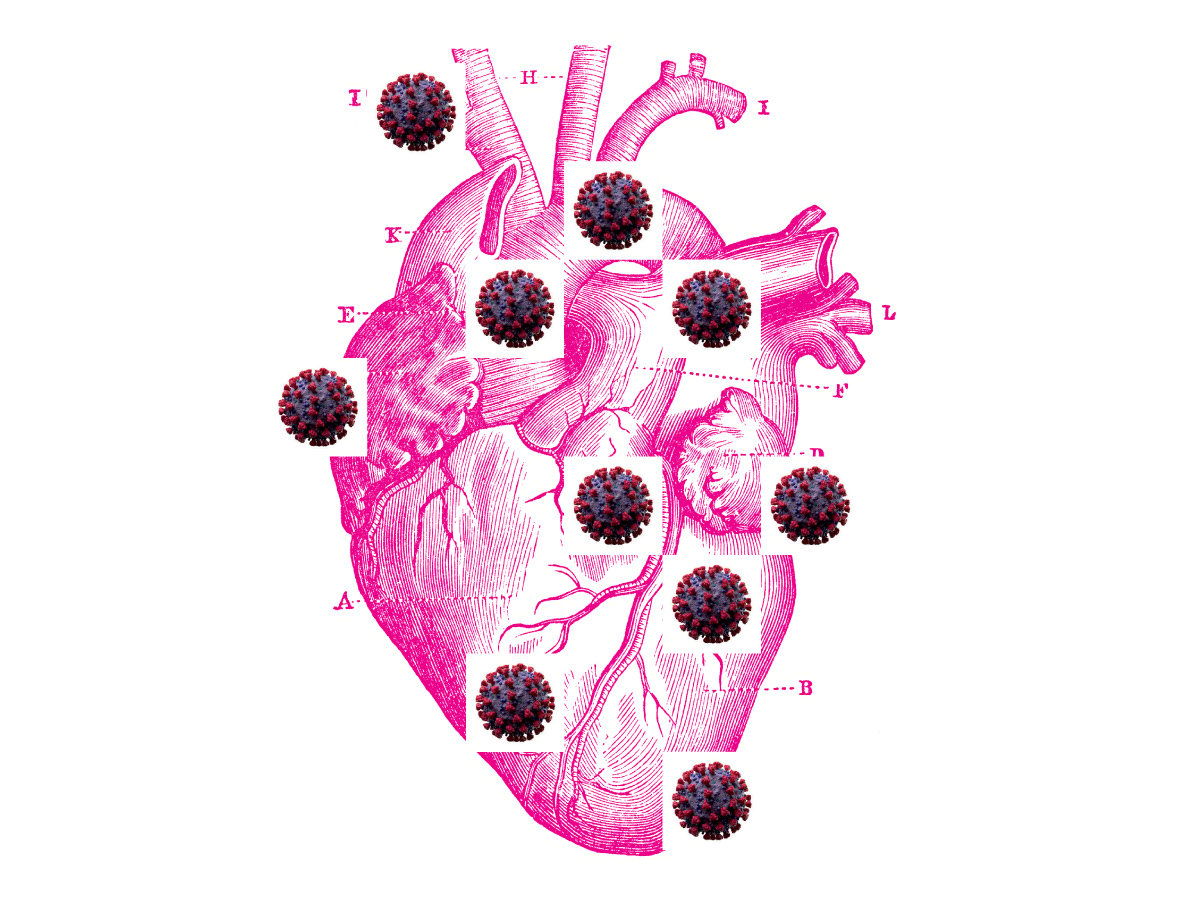In the backyard of the nation’s capital, local small businesses are using every ounce of their creativity to stay afloat. Local photographer Violetta Markelou’s project “Inbox Full” captures the inspirations, challenges, and struggles of these enterprises via portraits of the people who run them.
Says Markelou: “In shooting these images, I’ve looked at how each business owner tackles daily survival, from filling out grant applications to fully rethinking their business model. I hope that the portraits, along with the people’s words, bring to life the human beings behind the ventures—their emotions and their fortitude.”
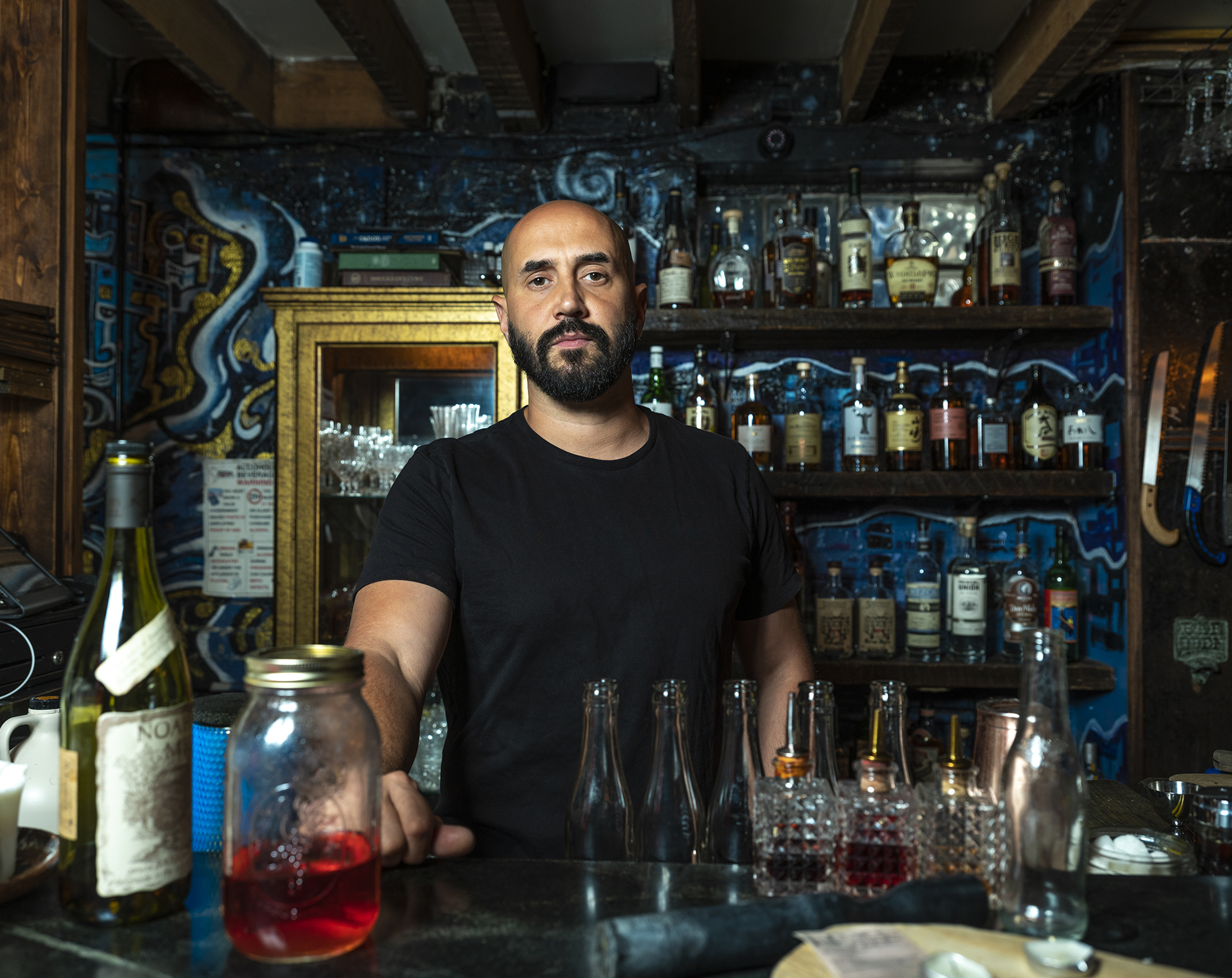
Steven Lawrence, real-estate developer and owner, 600 T bar, DC
“We closed March 12 after passing our two-and-a-half-year anniversary. You find this place through word of mouth. I could never find a name that stuck, so I just stopped thinking about it and focused on the quality and customer experience. I built this bar myself and incorporated the history of the building with the brick and wood. I thought I’d just rent it out, but I fell in love with the space. I saw it as an opportunity to provide an experience that I feel is lacking in DC. There’s a lot of cookie-cutter stuff. Here, you’re getting the real experience. You’re getting top-notch cocktails and service without the pretentiousness.
“I found out about this property through working on an arts commission with artist Robert Cole for the Duke Ellington Plaza. I knew they were going to develop this area while restoring the Howard Theatre. A week later, I saw this house for sale and saw a great opportunity to invest. I then bought the property that is now Bistro Bohem and renovated the entire building. I designed and built the apartments upstairs as well. I had no formal training, but I worked in construction and ran a demolition company for four years. All of these buildings are like my children.
“I worked with all my tenants and employees by having one-on-one conversations. If they aren’t even open and are struggling to exist even for themselves, how are they going to pay the rent? I tried to be as reasonable as I could. I was lucky that I made investments so I wasn’t so ‘in need’ myself. If this continued and all my tenants were out of work, what the hell would I do? There is a gloomy, dark potential that sits there.
“I have a wife and two young kids. It’s been a challenge to keep things running without the worry about bringing something home. Having faith and the philosophy I have had all my life has served me well. Knowing that life is more than the right here and now. It’s eternal. Knowing that there’s a deeper truth to my being. Life in this physical form is one part of something much larger.”
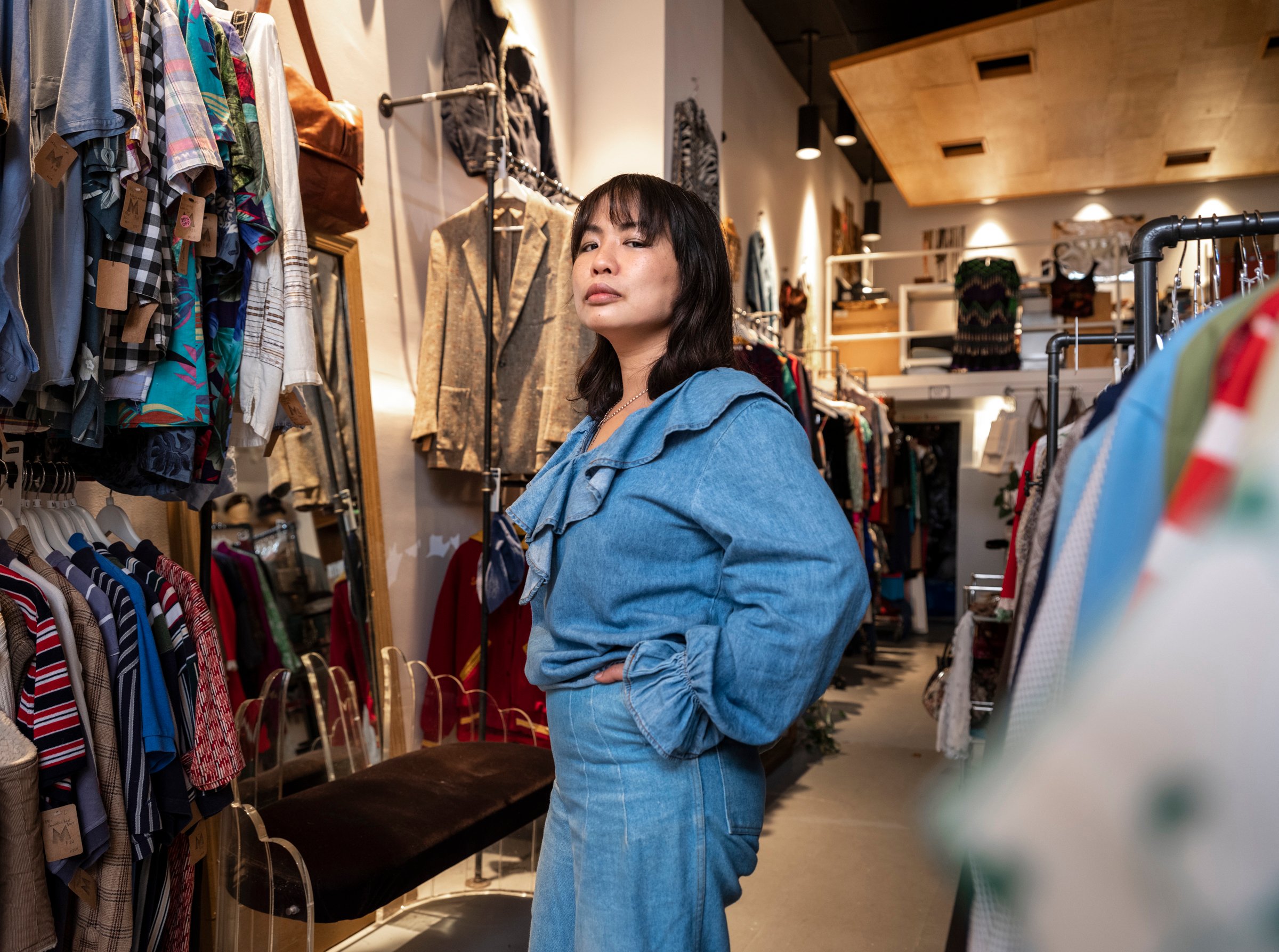
Cathy Chung, owner, Meeps Vintage, DC
“We already had a bad fall/winter season. I was trying to get above water when this happened. Luckily, I have a small group of loyal employees, and they’ve been very supportive. I want to prioritize taking care of my staff. I got my PPP loan and a DC grant Before these programs were rolled out, I wasn’t sure how I was going to take care of my employees or reopen.
“I’ve been in this [Adams Morgan] location since 2011. This whole thing has put a huge pause on everything. I have to reimagine the business and make short- and long-term changes as well. I have to re-strategize the shopping experience—the racks on the floor, dressing rooms, how many people are allowed in, etc. It’s tough to understand how the numbers are going to work, but hopefully once we get rolling, we will get support back from the neighborhood.
“To combat my stress, I have taken up an obsession with butter. I’ve started yoga again. I go running. I take the time now to open my art books that I never had time to look through before, to get inspiration. I check in more often with the people I love. I think this time has served to reassess everything that’s really important. But it’s tough when sometimes it feels like one very long day.”
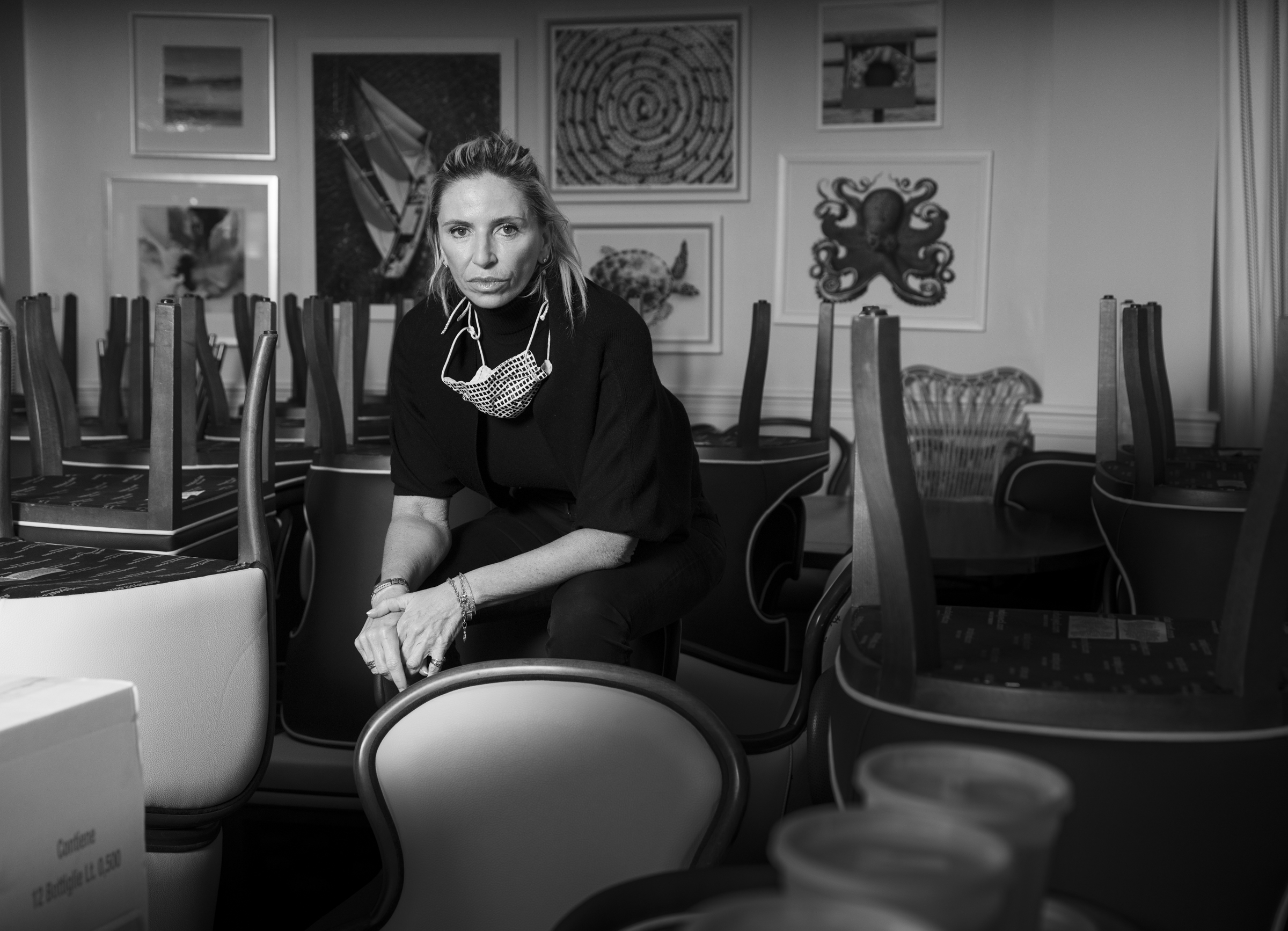
Maria Trabocchi, restaurateur, Fabio Trabocchi Restaurants
“What is the new next? How do we reinvent ourselves? How can I take care of you and still be high-end with the class, elegance, but with less human contact? Taking that [human contact] away is like taking your lungs out.
“You realize how human we really are and how little we need. I like shoes, but how many do I really need? Now you realize what is more real, what is more important. It has been beautiful spending so much time with my kids.My kids being here at this time helping me—they now realize what this takes. This is a sacrifice to make this happen as a business, as a family. No one else is going to teach them to do that.
“DC is a great city. Look at all these people picking up food! They could have gone to Safeway. They want to contribute. So many of our customers have donated to our fund to take care of our employees. Some called them directly and Venmo’d money to them.
“Fabio has put a lot of effort in building this brand. Knowing him, he will make it happen. He will do whatever it takes to open all of the restaurants again, and we are right here with him.”
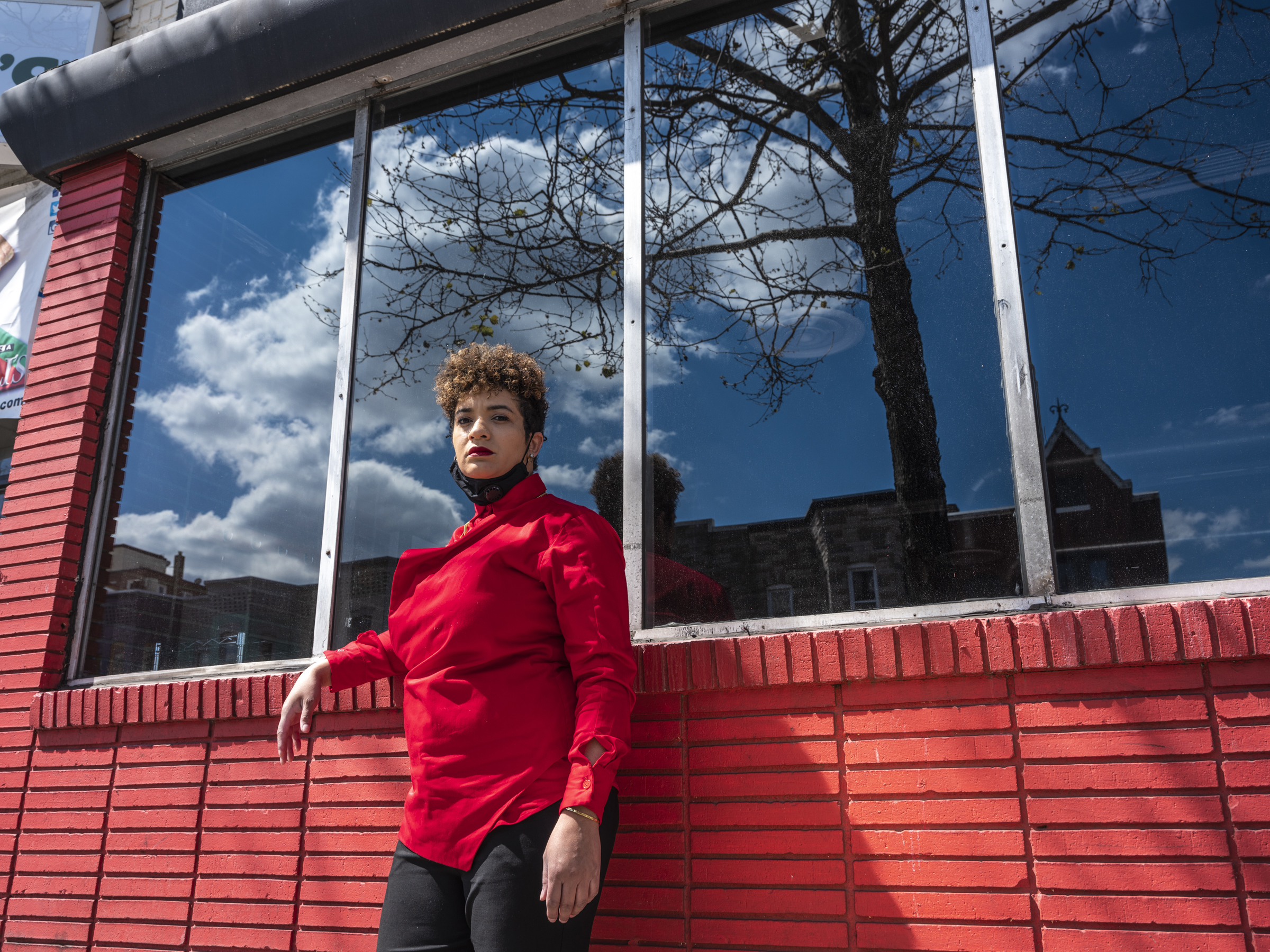
Lesley Bryant, founder and owner, Lady Clipper Barber Shop, DC
“I understand that these closures for non-essential businesses are necessary to make sure things are safe going forward, but this is a wake-up call for small businesses. We need to make sure we are prepared in the future for circumstances like this and continue to keep clean environments. I think some people have become too relaxed in this department.
“I feel a sense of responsibility to open back up for my employees, but also for myself. I provide a space for them to provide for their families and their lifestyle. We are taking all measures into account to ensure we can continue to provide a safe and healthy environment.
“As barbers, we are like life coaches. We provide a space of comfort for our clients, and we make sure they know we are taking this seriously. It’s in our best interest that they come in and leave safely.
“This pandemic has caused everyone to pause and really reflect on what’s important: our health and well-being. It has helped me appreciate this time to just sit still.”
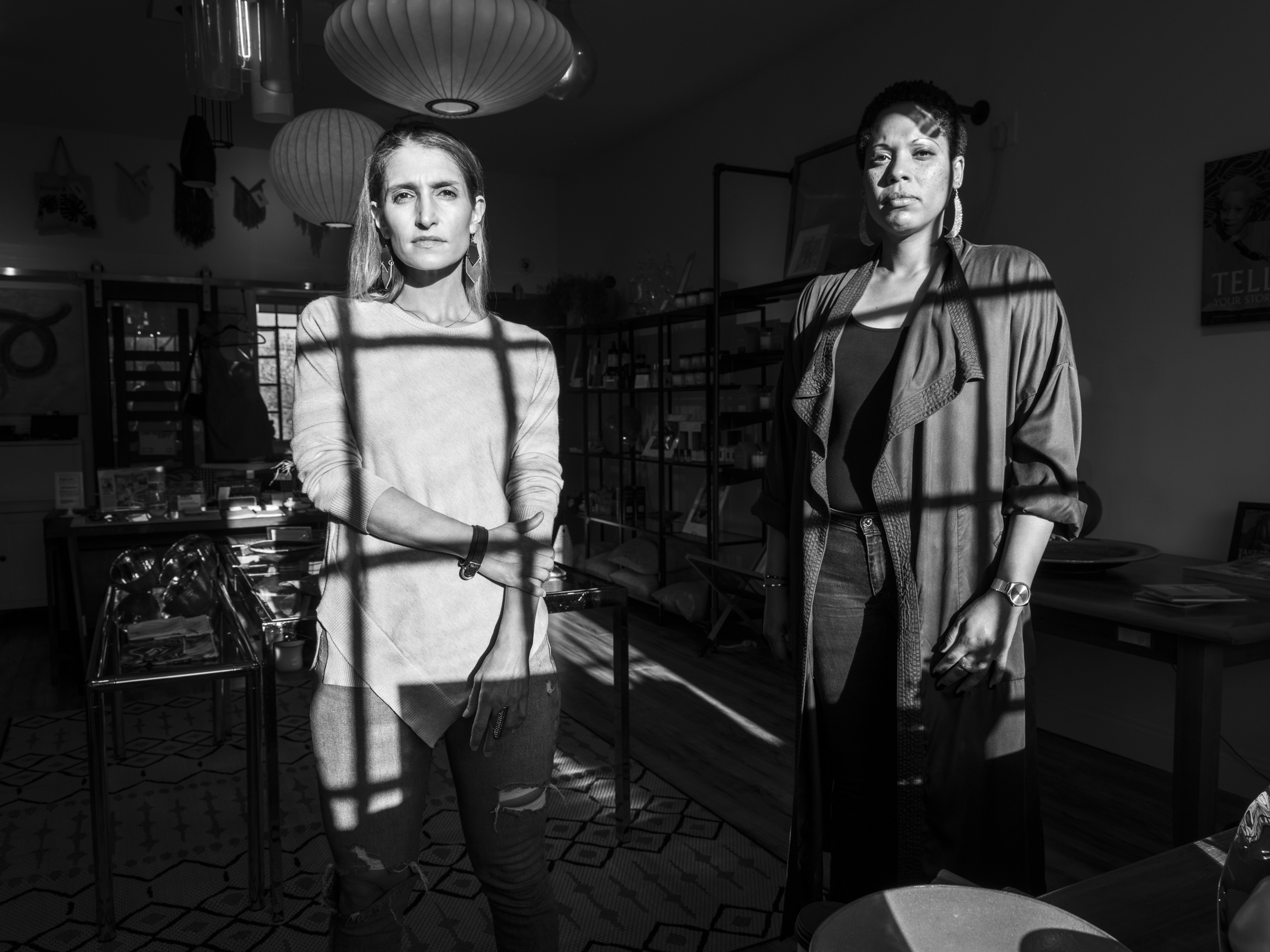
Erica Riggio and Angela Justice, designers and founders, Green Owl Design, Hyattsville
“We’ve been trying to find the silver lining, and that may be tightening up what we do as a business and how we do it. We’re thinking about how this pandemic has positively affected the environment. The Earth has been given a rest. How can we change to be more responsible? This experience has given us the opportunity to think about how to be ‘conscious’ designers.
“When this started, every one of our projects was canceled or delayed. Once we started to understand the gravity of the situation, there was a slight panic mode, but thankfully it didn’t last long. We figured out how to operate and tried to salvage our business. We have a small boutique that represents local artists, and we turned it into an e-commerce site. We just started virtual e-design. We’ve applied for many loans. No grant is too small.
“This stress we are experiencing is not isolated. It’s stress over paychecks, keeping your doors open, stress over contaminating your family. So many levels. If you can eliminate just one of those stresses, it can help bring your creativity back.”
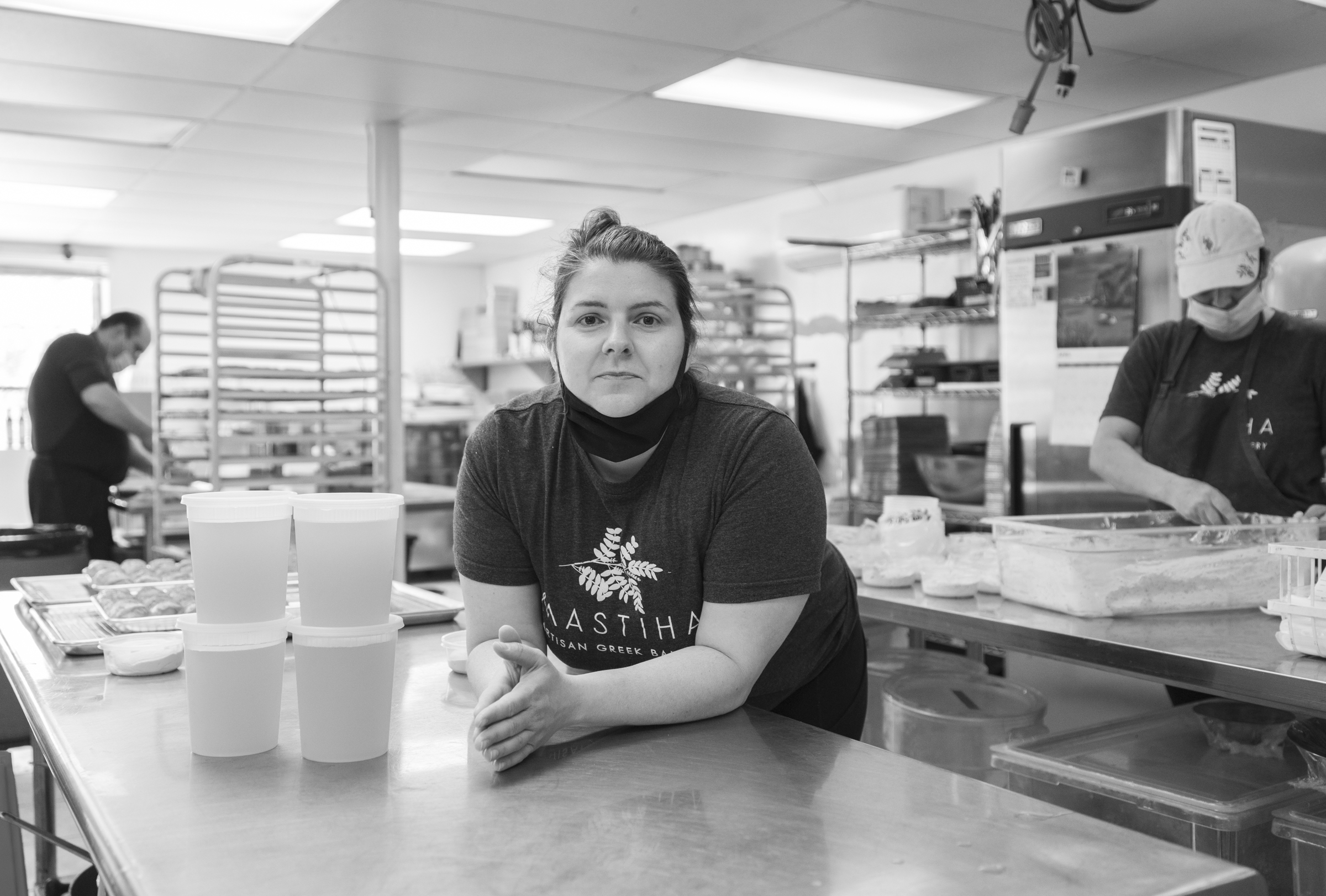
Katina Georgallas , founder and owner, Mastiha Artisan Greek Bakery, Kensington
“Pre-Covid, I was a slave to the market demand and bookkeeping. I lost touch with all the reasons I started a business-—to be creative in the kitchen, to connect with my customer. So now I am able to connect with my customer more personally than I have in a very long time. This is what I’ve always wanted to do, but I was too busy running on the hamster wheel and not knowing when or how to stick a pin in it.
“I’ve gotten some of my creativity back. I like the direction my business is going. The silver lining in all of this is now I am able to strengthen these relationships with people who normally may not have come to my [production] kitchen.
“There is greater purpose right now in what I’m doing than just selling a really delicious fucking cookie!”
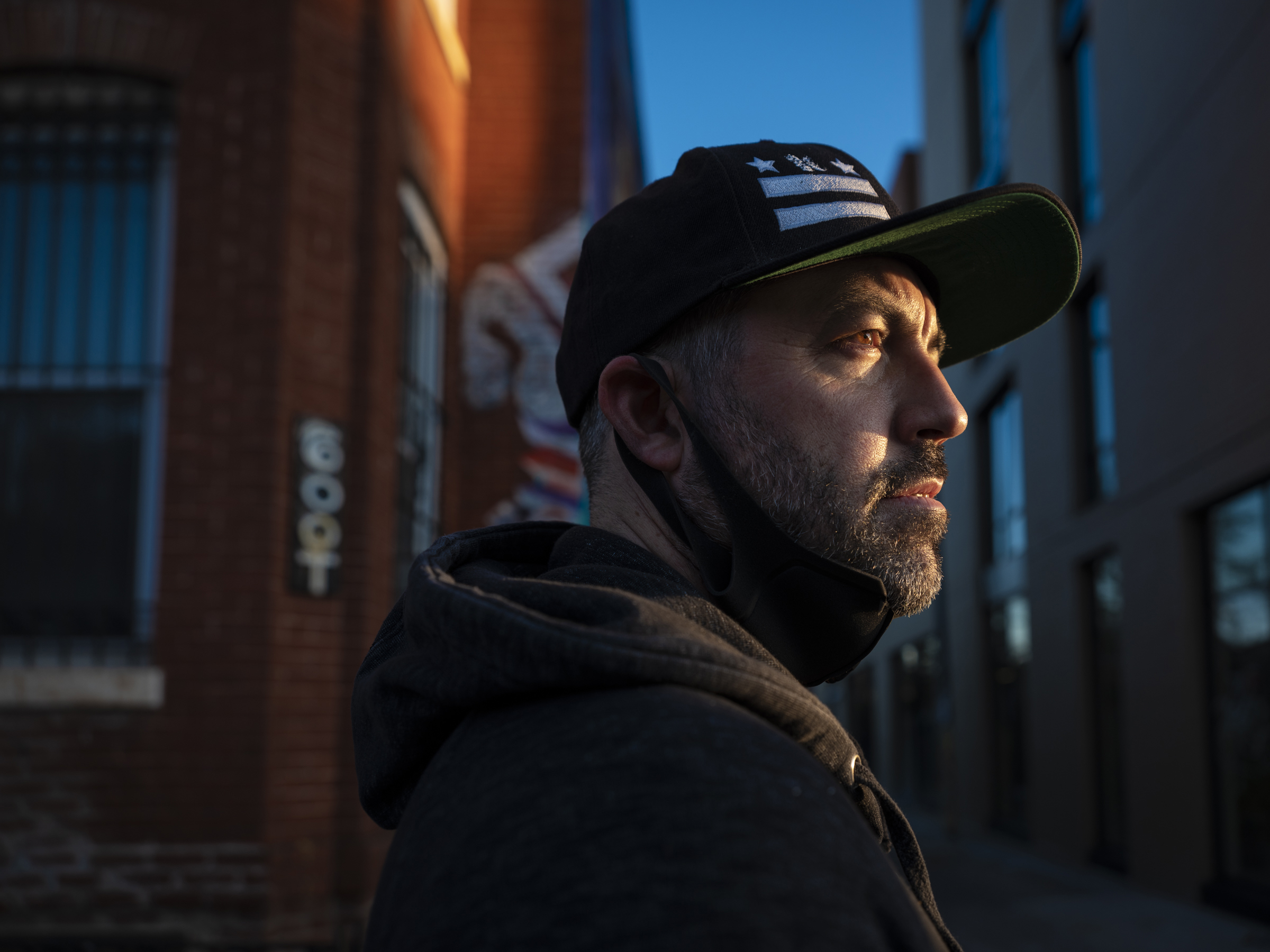
Louie Hankins, founder and owner, Rito Loco restaurant and El Techo bar, DC
“Things are changing every day. There is so much confusion. No one returns calls or e-mails since they are so inundated and unprepared for this. The biggest problem I have mentally is that the government has not done their job effectively, and this has cost small-business owners hundreds of thousands of dollars. I’m not looking for a handout. I just want things to be fair.
“I was worried about my staff getting sick, but I [personally] don’t have an option to not be open. Even if I’m just making a thousand dollars a week, I have to do it because every penny counts. I’ve got hundreds of thousands of dollars in debt that has to be paid back. There are plenty of days where my heart is racing or I have weird shooting pains all over my body from stress.
“PPP and SBA loans are not for paying debts. They’re strictly for operational costs, so the money I should be making to secure my financial future is not there, because we’re operating at 99 percent down in sales. These loans feel like a Band-Aid over a shotgun wound. I mean, how do you sell a $4 taco and come out of a hole of almost a million dollars in debt?”
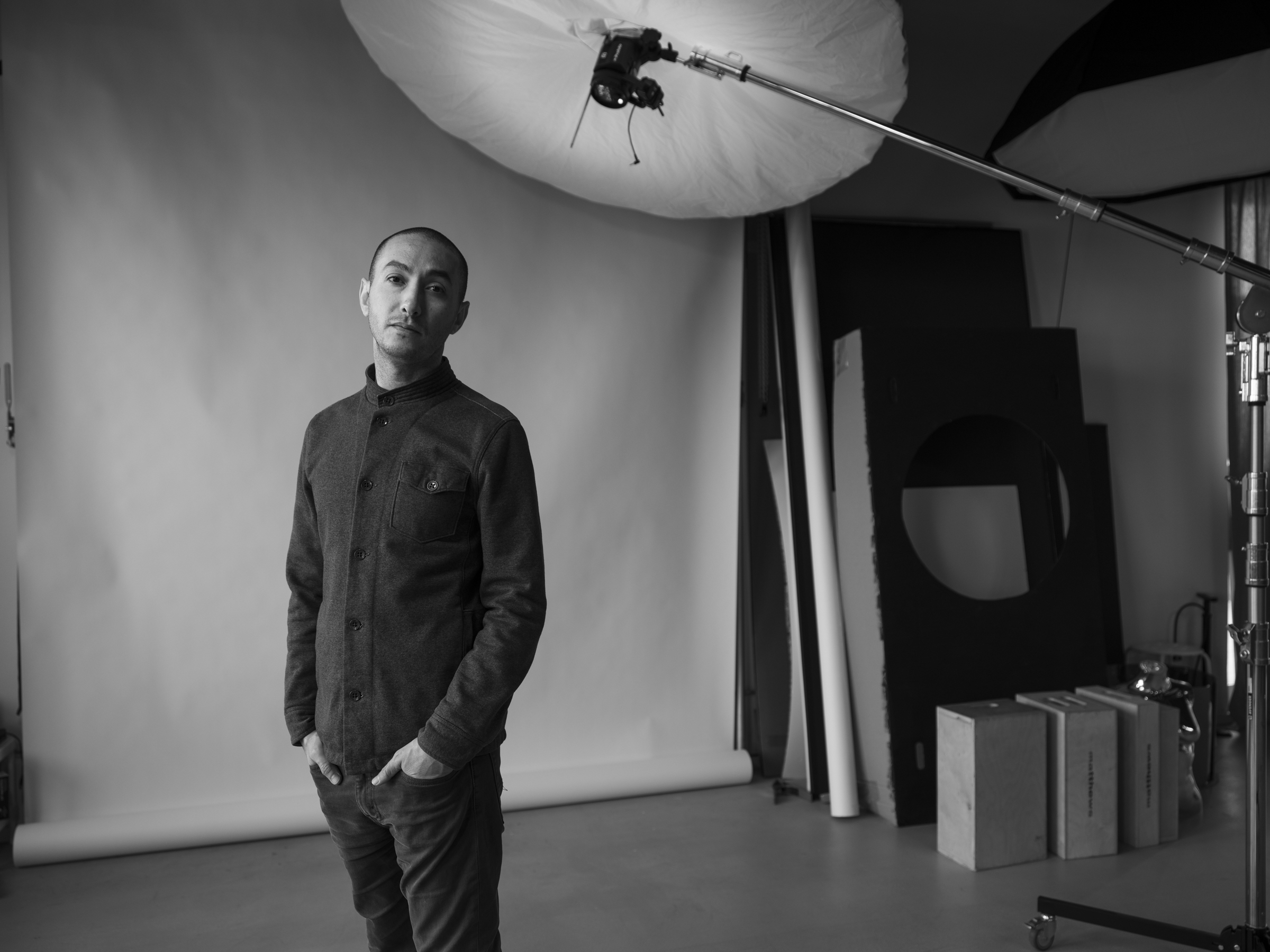
Yassine El Mansouri, freelance photographer and owner, Elman Studio, DC
“Mentally, I am doing all right. Financially—for now—I am doing okay. But my career as a photographer—I have no idea where that’s going. I don’t know how I am going to get back to doing photography for art institutions while they themselves don’t know if they’re going to reopen. I run my own business and I’m a conceptual artist, but most of my work comes from the Kennedy Center, the National Building Museum, and other institutions. Since these organizations are going to struggle to get back to normal, I have to be creative and figure out how to change course. Most of my work is event photography—sports events, galas, big crowds. I don’t know how we are going to resolve that and make it safer. I will most likely focus on more portraits and editorial [projects].
“Applying for loans and unemployment has been frustrating. Not knowing if you’re filling out the right form, being on hold for hours. I take walks, I go running. I do worry if I am going to get sick. What’s keeping me afloat is doing my creative work that I do mostly for the process. Making art and photography is my therapy.
“I don’t have family here in the US. Having family all over the world, going through something like this is not easy. Having parents you can’t see—check on them, do groceries for them—is very hard. I miss my friends. I miss meeting new people, being nonchalant about touching and hugging. We take a lot of things for granted.”
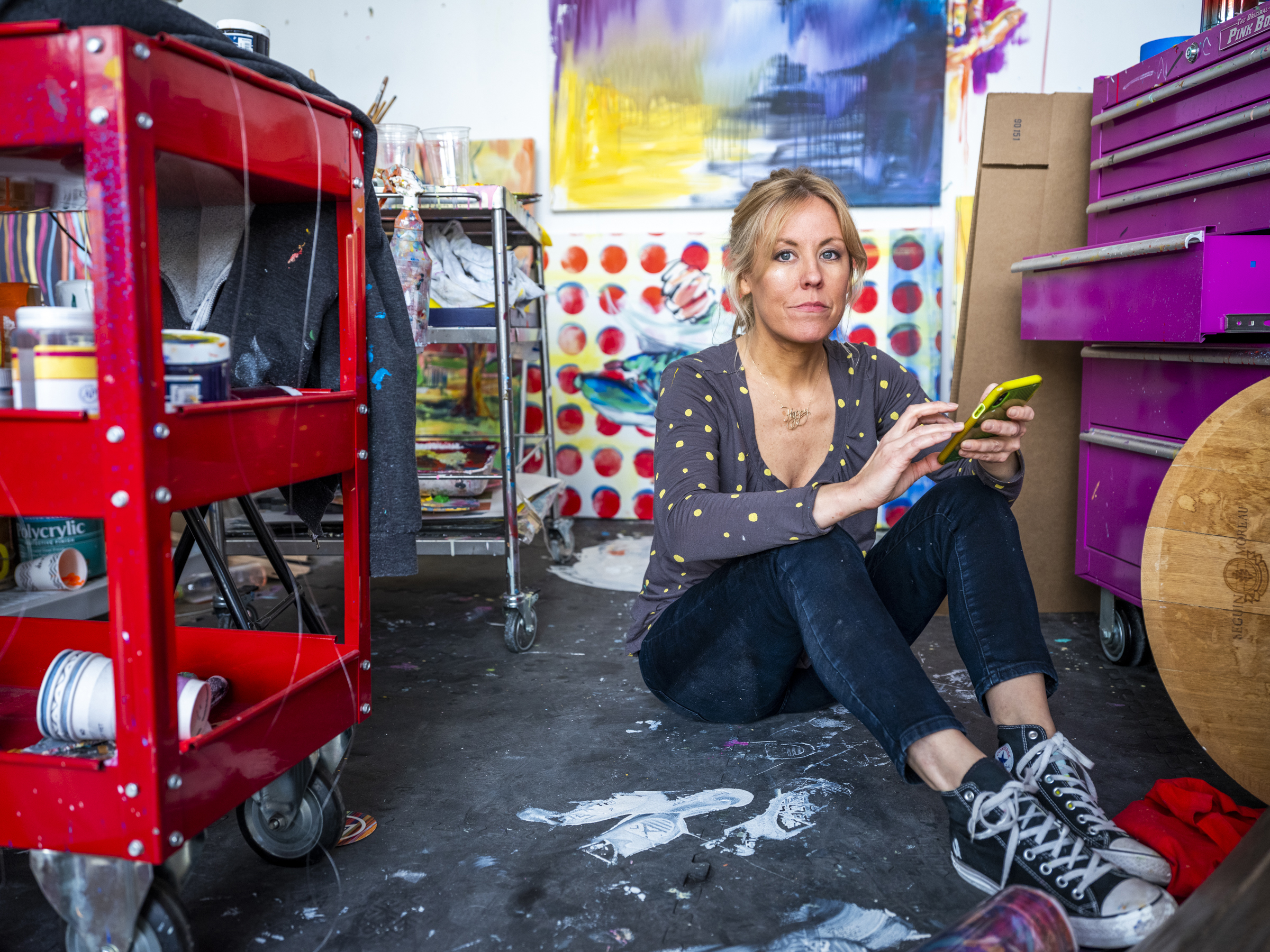
Maggie O’Neill, artist, designer, and chief creative, Swatchroom, DC
“I don’t think we should be focused on rewinding. I don’t think we will see our lives ‘go back.’ They will go forward, they will be different, they may even improve, but it’s hard for people to understand because we are suffering a loss and a trauma.
“I’m hoping we can think about how people can be more flexible and versatile in their business practice. My design firm is thinking through how this affects hospitality. The most beautiful thing you can do, in my opinion, is break bread with someone. That’s something technology can’t really replace. As a globe, we’re going to figure out innovative ways to continue that practice, with health being the number-one priority.
“We need to respect the fact that it takes time to solve a problem correctly. I don’t know that the American population is ready for that. We were living in an instant-gratification world, and that is not how this virus is going to play out. This is going to be the toughest pill to swallow. But it’s one that could teach us how to have more measured responses.
“I’m lucky that I have art as a business. It is a psychological exercise to calm myself down, to come up with new ideas, to feel that tangible-yet-intangible sense of hope. We’re not alone, but sometimes our challenges are, frankly, smaller than some others. To believe that your individual problems are a cog in a wheel humbles you and resets your perspective. I think that is as important to mental health as anything right now.”
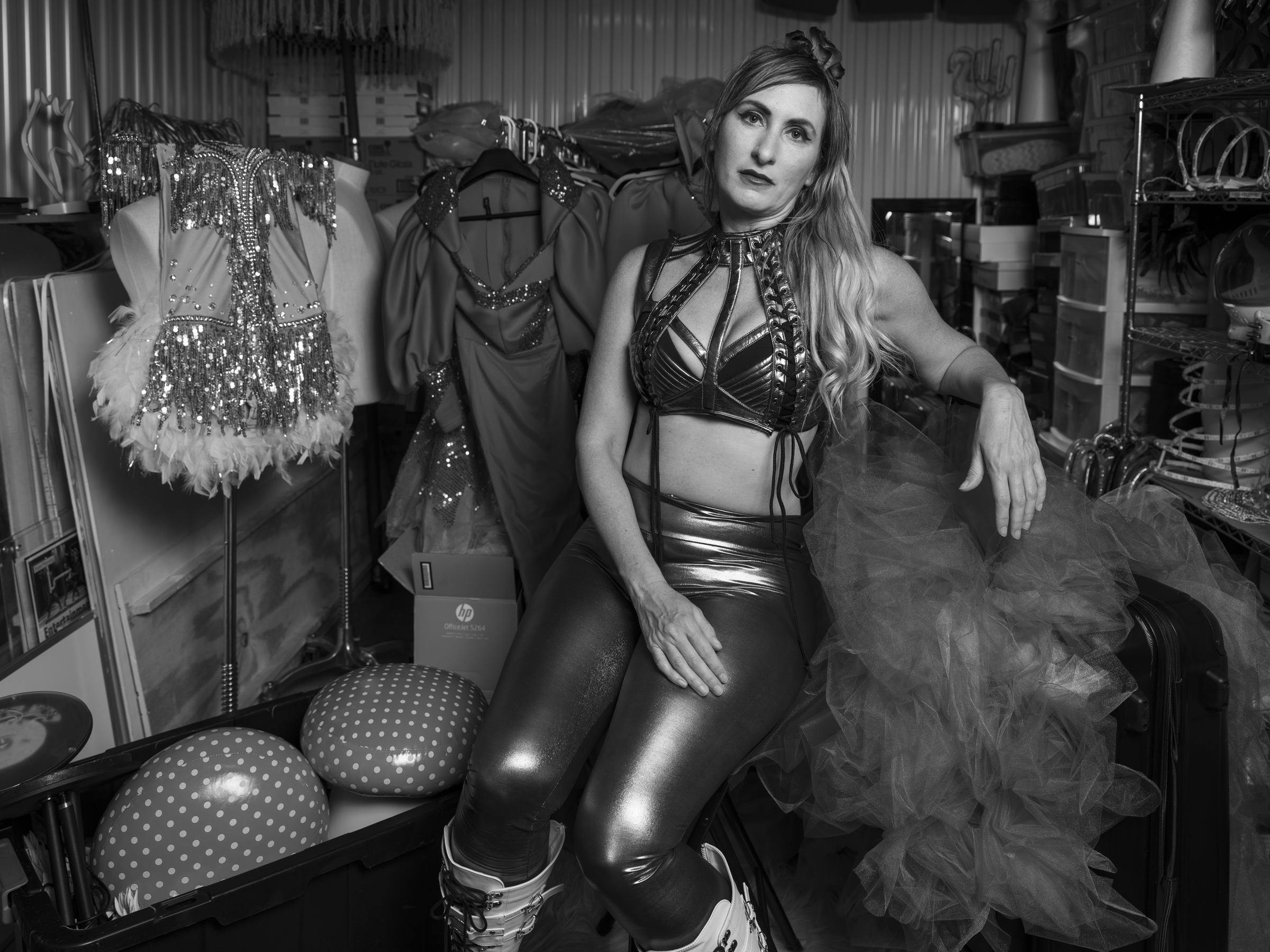
DJ Neekola, DJ, entertainer, founder of Pelonkey, DC
“I have two companies. One is my DJ Neekola company, with many personalities, and the other, Pelonkey, is an entertainment company. I had to focus on Neekola to generate income because I’m not sure how long unemployment would’ve lasted me. Once I had a healthier state of mind, I sent out a newsletter and reached out to my contacts. I started virtual DJing and helping other companies put their platforms online. It’s not what I used to make, but I was able to pay my rent, put food on my table, and get off unemployment.
“Talking to people in my industry and understanding what their experiences were helped me move forward. I created online events to give people happiness and opportunity. I started to feel better when I understood the scope of this problem was worldwide. I could breathe a little better when I thought, ‘This isn’t happening to me because of my failures. This is something out of my control.’
“My main employee, Michael, and I talk every day. Sometimes he and I butt heads because of so much stress. Between people yelling at me and sometimes us yelling at each other, I had to just stop and say, okay, listen—we have to take time to heal as human beings. The world is still trying to figure out how to put one foot in front of the other, and until we feel better about our own mental health, we can’t make rush decisions.
“I try not to have too much despair, because that’s not going to get me anywhere. If I have hope for something, it will keep me and others close to me driven for a goal. Just having a daily video phone call with a friend to see each other, make fun of each other, or even just cry—that really helped me get my day started on a positive note.”
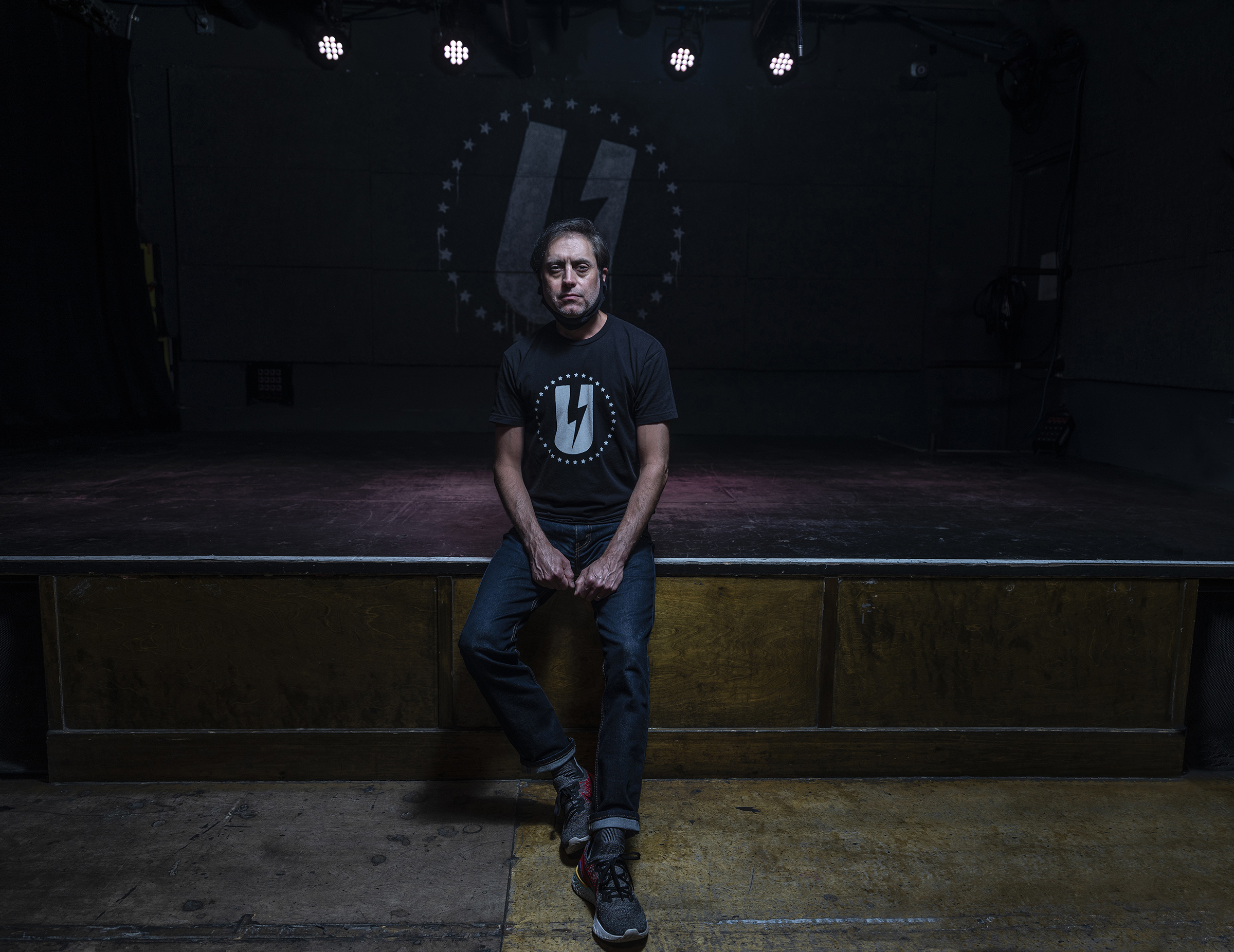
Will Eastman, owner, U Street Music Hall, DC
“In my previous life, I studied history at the Smithsonian Museum of American History, so I was very familiar with the 1918 pandemic. I grew up in the working class of Wisconsin. You see other industries destroyed in your life—manufacturing and farming. I came to DC to go to college and never left. I fell in love with this place because it’s filled with entrepreneurs. Social entrepreneurs, political entrepreneurs, all varieties. I love the “do something” spirit and also its rich African American culture.
“I quit my job at the Smithsonian to become a full-time DJ and music producer and promoter just before the financial crisis, and within three years I opened this place. We were at the cusp of our ten-year anniversary when we had to shut down. But my team and I got to work. We started live-streaming DJ sets. We’re launching a new live-streaming channel that will utilize our sound system and DJ booth. We’ve launched an online retail shop to move T-shirts.
“Our shareholders are the people of U Street, historic Black Broadway. We feel an immense responsibility. It’s our role to continue providing live music, but for now we will do it through the live streams. You can’t make money through them, but that’s our job. I’m 51 years old. It sounds weird, but I guess I am a leader in my industry. If people like me aren’t going to step up and help our community, who is?
“Thinking back to 1918, how did people persevere? When I started putting things in perspective, given what I know from my history education, I understood that nothing is permanent. I just think about the long term and know I’ll get through the short term. I decided I wasn’t going to cry and give up. I was going to go to work every day as I always have, and now I work harder than ever.”

